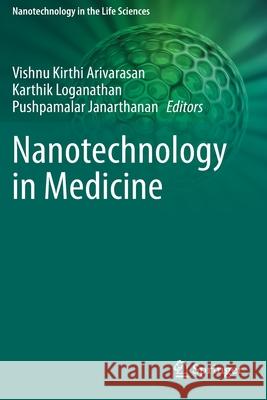Nanotechnology in Medicine » książka
topmenu
Nanotechnology in Medicine
ISBN-13: 9783030610234 / Angielski / Miękka / 2022 / 280 str.
Nanotechnology in Medicine
ISBN-13: 9783030610234 / Angielski / Miękka / 2022 / 280 str.
cena 603,81
(netto: 575,06 VAT: 5%)
Najniższa cena z 30 dni: 578,30
(netto: 575,06 VAT: 5%)
Najniższa cena z 30 dni: 578,30
Termin realizacji zamówienia:
ok. 22 dni roboczych.
ok. 22 dni roboczych.
Darmowa dostawa!
Nanomedicine is the field of science that deals with organic applications of medicine at the nano-scale level. It primarily addresses finding, anticipating, and treating sickness, as well as using nanotechnology to assist in controlling human frameworks at the cellular level. The nature of nanotechnology allows it to address numerous medical issues in humans. This book offers comprehensive information to better comprehend and apply multifunctional nanoparticles in nanomedicine, and thus open avenues in the field.
Medicating at the nanolevel is an exceptional therapeutic avenue, as it avoids symptoms associated with conventional medicines. This book investigates recent insights into structuring novel drug delivery frameworks. It concentrates on the physical characteristics of drug delivery transporters, and the preliminary procedures involved in their use. The book offers in-depth detail that benefits academics and researchers alike, containing broad research from experts in the field, and serves as a guide for students and researchers in the field of nanomedicine, drug delivery, and nanotechnology.











